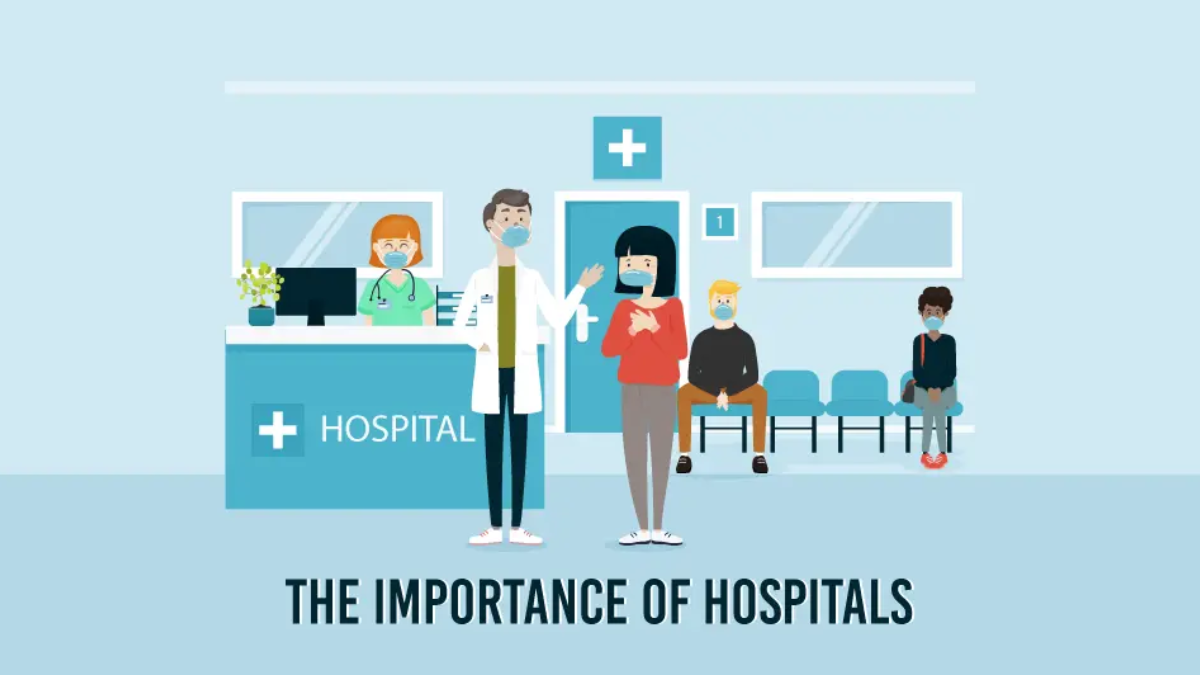Hospitals are essential pillars of modern healthcare systems. They are more than buildings with beds and doctors—they are complex institutions designed to provide comprehensive medical services, emergency care, and patient support. Modern hospitals combine skilled healthcare professionals, advanced technology, and specialized departments to ensure patients receive the best care possible. Understanding their role helps individuals make informed decisions about healthcare.
The Importance of Modern Hospitals
Modern hospitals are vital for several reasons:
- Life-saving Services: Hospitals provide immediate medical attention for accidents, injuries, and severe illnesses.
- Specialized Care: From cardiac treatment to oncology, hospitals offer specialized services that cannot be managed at home.
- Preventive Healthcare: They organize vaccination programs, health screenings, and wellness initiatives to prevent diseases.
- Medical Research: Many hospitals contribute to medical research, discovering innovative treatments and improving patient outcomes.
- Education and Training: Hospitals train future doctors, nurses, and medical professionals, ensuring the growth of the healthcare industry.
In essence, modern hospitals serve as hubs for health maintenance, recovery, and medical innovation.
Key Services Offered by Modern Hospitals
Modern hospitals provide a wide range of services designed to meet the diverse needs of patients. These include:
1. Emergency and Trauma Care
Emergency departments operate 24/7 to provide immediate care for life-threatening situations such as:
- Accidents and injuries
- Heart attacks and strokes
- Severe infections
- Sudden medical emergencies requiring immediate intervention
Equipped with advanced medical equipment, emergency rooms save countless lives every day.
2. Outpatient and Inpatient Services
Outpatient Department (OPD): Handles consultations, routine check-ups, and minor treatments without hospitalization.
Inpatient Services: Provide admission for patients requiring continuous monitoring, surgical procedures, or recovery from serious illnesses.
3. Surgical Services
Modern hospitals are equipped with advanced operation theaters for:
- Major surgeries like cardiac bypass, neurosurgery, and organ transplants
- Minor procedures and laparoscopic surgeries
- Robotic-assisted surgeries for precision and reduced recovery time
4. Diagnostic and Laboratory Services
Accurate diagnosis is crucial in modern medicine. Hospitals provide:
- Laboratory tests including blood, urine, and tissue analysis
- Imaging services such as X-rays, CT scans, MRI, and ultrasounds
- Specialized diagnostic tools for heart, liver, kidney, and cancer-related conditions
5. Specialized Departments
Modern hospitals house departments to address specific medical needs:
- Cardiology: Heart-related conditions
- Oncology: Cancer diagnosis and treatment
- Pediatrics: Child health and neonatal care
- Gynecology and Obstetrics: Women’s health and childbirth
- Neurology: Brain and nerve disorders
6. Rehabilitation Services
Recovery extends beyond hospital treatment. Rehabilitation departments focus on:
- Physical therapy for post-surgical and injury recovery
- Occupational therapy for daily activity support
- Speech and language therapy
- Customized exercise programs for chronic illness management
Technology in Modern Hospitals
Technology plays a pivotal role in enhancing healthcare delivery in modern hospitals. Key technological advancements include:
- Electronic Medical Records (EMR): Efficient tracking of patient history, medications, and treatment plans
- Telemedicine: Online consultations for patients who cannot visit physically
- Robotic Surgery: Enables precise and minimally invasive procedures
- Advanced Imaging and Diagnostics: Provides accurate detection and treatment planning
- AI and Predictive Analytics: Helps monitor patients, predict complications, and improve outcomes
By integrating technology, hospitals ensure faster, safer, and more effective medical care.
Patient Care in Modern Hospitals
Modern hospitals emphasize patient-centered care. Key aspects include:
- Hygiene and Safety: Sterilized equipment, clean wards, and infection control
- Comfort and Convenience: Private rooms, nutritious food, and counseling support
- Continuous Monitoring: Regular check-ups, vitals monitoring, and medication management
- Emotional Support: Counseling services for patients and families to cope with illness
Patient well-being is central to hospital operations, ensuring holistic care that includes physical, mental, and emotional health.
Choosing the Right Hospital
Selecting a modern hospital requires careful consideration:
- Specialized Services: Ensure the hospital has the required department for your condition
- Reputation: Consider patient reviews, awards, and hospital rankings
- Location and Accessibility: Choose a hospital that is easy to reach in emergencies
- Facilities and Technology: Modern equipment and comfortable amenities enhance patient experience
- Insurance Support: Check if the hospital accepts your health insurance
Private hospitals often provide personalized care, while government hospitals focus on affordability and accessibility for the wider population.
FAQs About Modern Hospitals
1. What is a modern hospital?
A modern hospital is a healthcare facility that provides advanced medical treatment, emergency care, diagnostics, and patient support using the latest technology.
2. What services do modern hospitals offer?
They provide emergency care, surgery, outpatient and inpatient services, diagnostics, specialized departments, rehabilitation, and preventive care.
3. How do modern hospitals ensure patient safety?
Through sterilized equipment, infection control protocols, trained staff, continuous monitoring, and adherence to healthcare guidelines.
4. Can hospitals provide care without insurance?
Yes, most hospitals provide services to patients without insurance, although payment may be required upfront.
5. What technological advancements are used in modern hospitals?
Electronic medical records, telemedicine, robotic surgery, AI-based monitoring, and advanced diagnostic imaging.
6. How do hospitals support mental health?
They provide counseling, therapy, psychiatric care, and emotional support for patients and families.
7. What is the role of specialized departments?
Departments like cardiology, oncology, pediatrics, gynecology, and neurology provide focused care for specific health conditions.
8. What is outpatient care?
Outpatient care includes consultations, minor treatments, and follow-ups without hospital admission.
9. How do hospitals handle emergencies?
Emergency departments operate 24/7 with trained staff, life-saving equipment, and ambulance services for rapid response.
10. Why is rehabilitation important in hospitals?
Rehabilitation helps patients regain strength, mobility, and independence after surgery, injury, or chronic illness.

